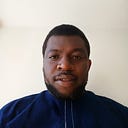My thoughts on Obama’s latest book ‘A Promised Land’
“What limits what we can learn from our stories, is our tendencies to intellectualise the past rather than re-live it”.
A Francine Shapiro quote, rephrased by the School of Life
When you hear of ‘a promised land’ what comes to mind? If you are like me (and frankly most people I know) it would be just as the name says…a promised land. The reality of the matter is, life rarely promises. It is as we go through it that we get a sense of what is possible, and from that, frame an idea of what good looks like. And it is this sense of what good looks like that impresses on our minds, what is felt is promised. It is from this position of entitlement that we experience a sense of discomfort, a feeling that has moved societies from the dark ages through the various industrial revolutions, bringing us to a world as it currently is: a world still yearning for improvement. But despite all our brilliance, we are unable to articulate the world as we feel it should be. So we look to leaders, writers and artists, to paint that future we collectively imagine.
Prior to his book launch in November 2020, the year was a tough one. The book’s release was after one of the most unprecedented elections in US history. An election that saw the very tenets of democracy being challenged by a sitting president, unwilling to accept defeat. The year already started with signs of a global recession, signalled by the US’s yield curve inversion and emerging cracks in the consumer markets that were spurred by Brexit, anti-globalisation sentiments & the Thucydides Trap, (the current state of affairs between the United States and China that sparked off the trade wars). This wasn’t helped by the Covid19 virus global pandemic that has infected about 83 million, killing almost 2 million people and counting (data accurate as at 10:00 pm 31st of December 2020 EST).
All these were backdropped by the revelation of widespread racial tensions made apparent by George Floyd’s killing. This action revealed how we (black people) are routinely subject to systemic racial profiling in our daily interactions, resulting in undue stress and sometimes, loss of life. Humanities greatest strength is its ability to throw aside its differences and fight a common threat. By doing so, it had strengthened societal bonds and socially integrated minorities. The black life matters protests aimed to bring to bear how some are yet to accept the humanity of everyone. This attitude can affect our capability to face existential threats like the looming pandemic. From every sense, 2020 appeared to be the year that would unravel humanity’s 7,000 years civilization.
So when Barack Obama talked of ‘a promised land’, I expected a non-conventional view from one of the world’s greatest statesman on the situation in the world, and his opinion on that vision we hope for but aren’t able to articulate.
To be fair, the former president wrote eloquently about what it was like to be Obama coming of age, witnessing what it meant to make history. And that actually is the book’s saving grace, covered in the first 17 chapters. We got to experience him adjusting to his new life and living it. The remaining 10 chapters read like an effort to defend decisions taken as president. His comments were politically correct, framed in that speechwriting, legalistic form. It felt like a state of the union address.
I don’t think Obama wrote a book fit for the time…rather he wrote a book that reads like democrat propaganda, packaged as thoughts of Obama. We learnt of his daily political manoeuvring, the filibustering tactics, negotiations,
and also trade-offs necessary to get Republican votes in the House of Congress.
I am a fan of Obama and more left-leaning in my political ideology. I had written a fictitious account of what was like to be Obama as the reality of being the first black president sets in. To do that, I explored self-doubt and imposter syndrome. I still recommend reading the book, especially the first 17 chapters which was probably some of the most eloquent of biographical writing, I have seen. This book was therefore thrilling as he provided a more vivid description beyond my previous effort, of adjusting to reduced public access and freedom, how he felt riding a motorcade and witnessing the streets cleared for the first time, or what was like to be living inside the prestigious white house as its main occupant. His book was, however, lacking in extending this emotion to more apparent topics like the rise of populism, falling trust in the government, racial & xenophobic tension, rising income inequality, and what the world should be doing to get back on track..basically, his opinion on if we are actually heading to ‘a promised land’.
I think that the greatest flaw of this book…Obama unwillingness to give unhinged opinions of these crucial times, and also provide a framework to his readers on how to think about it.
